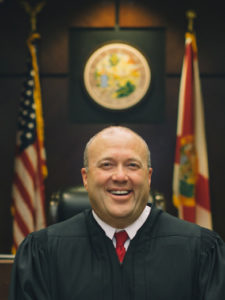
“Talking taxes & the French and Indian War”
Ask Judge Smith

By Layne Smith
Special to the Outlook
Our discussion of government and American justice begins with the French and Indian War. This conflict began in 1756 when local Indian tribes allied with the French and fought against British expansion.
In response, American colonists formed their first continental army to fight the war, which was inadequately financed, poorly trained and largely ineffective. The British Army joined the fray, but for years fared no better. Eventually, Great Britain won the war by building up and maintaining a large standing North American army and then by taking the fight to the French and their Native American allies throughout the continent.
The French and Indian War lasted seven years, and the cost of winning the war and maintaining the peace afterwards created a huge debt for the British Empire. In response, Parliament imposed heavy regressive taxes on American colonists, while simultaneously denying them the right to vote in Great Britain’s Parliamentary elections.
Our founding fathers bristled at this situation.
They were required to obey British laws and be loyal subjects, but their rights were dramatically restricted. They were prohibited from gathering, their speech was censored, and they couldn’t print what they wanted to say in their newspapers or other publications.
British military and law enforcement officers searched colonists and their properties without cause, and American colonists were arrested, jailed and held indefinitely without being told why. They had no right to counsel, no right to a trial by a jury of their peers and trials were not open to the public. Criminal defendants were forced to testify; otherwise, their silence was used to incriminate them.
The combination of taxation without representation and these legal injustices sowed the seeds of the American Revolution. If the French and Indian War had never happened, our legal system would be dramatically different. And I’d probably have to wear one of those funny white powdered wigs in the courtroom.
Remember to submit your questions about civics or the law to askjudgesmith@gmail.com and we will talk again in two weeks.
This article was first published in the Tallahassee Democrat.
J. Layne Smith is a Leon County Judge who handles a wide variety of criminal and civil cases. He often speaks and writes about civics, the law, our legal system and the administration of justice.







